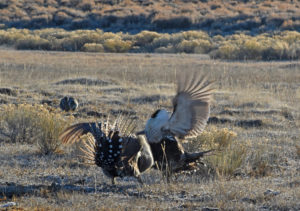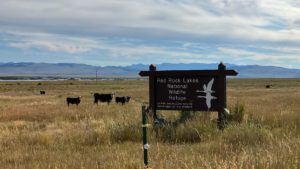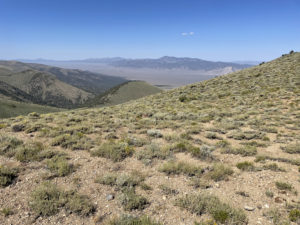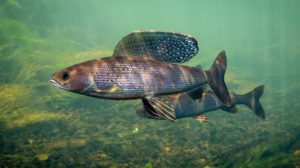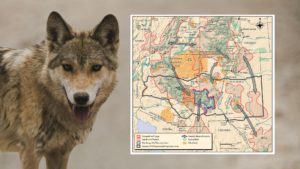
August 10, 2023
Western Watersheds Project and the Sierra Club-Grand Canyon Chapter, represented by Advocates for the West, won a lawsuit that stops livestock grazing authorizations in the Sonoran Desert National Monument. The Bureau of Land Management was given another chance to redo its analysis of the compatibility of livestock grazing in the monument after we won on this issue in 2015, but the court agreed with us in yesterday’s ruling that the agency made an arbitrary and capricious decision in 2020 as well.
The Bureau based their more recent analysis of livestock impacts, and their decision to allow grazing, on the flawed premise that livestock don’t travel more than two miles from water sources, despite evidence in the record that they do. The judge also found that the agency lowered the bar for determining whether the plants found in the Monument were harmed by livestock grazing. It seems painfully obvious that, time and time again, the Bureau has been interpreting its data in support of its foregone conclusions to allow livestock grazing to continue.
The 2001 Presidential Proclamation establishing the monument prohibited any livestock grazing use unless it was compatible with the protection of saguaro cacti forests, desert tortoises, bighorn sheep, Sonoran pronghorn, palo verde and ironwood trees, rare patches of desert grasslands, as well as significant archaeological and historic sites, among many other features. Despite numerous scientific studies and evidence that it isn’t, the Bureau has continued to defend its tradition of allowing hundreds of cattle to trample soils, spread invasive weeds, and degrade the fragile desert ecosystem.
The judge has remanded the decision back to the Bureau of Land Management. The agency will have to try, for a third time, to make a rational and science-based decision as to whether or not livestock grazing can be compatible with protecting the fragile biological and cultural resources on the Sonoran Desert National Monument. These lands are the traditional homelands of the O’odham, Yavapai Apache, Cocopah, and Hohokam peoples.
Photo by Cyndi Tuell/WWP

